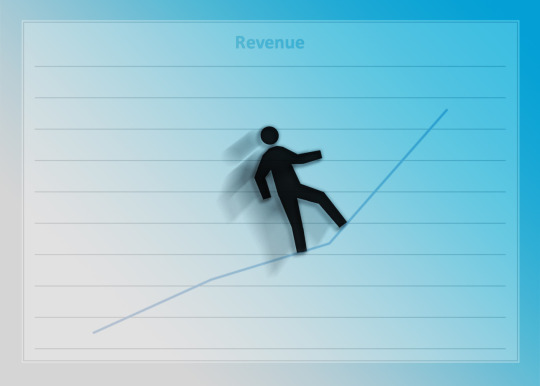

Categories
Consumer Behavior
April 5, 2016
Why is there a perception that the research budget is fair game when times are difficult? Here are the main factors behind this attitude.
0

By Neal Cole
A few years ago I was working for a UK commercial bank and the Marketing department had been called together to meet the new Head of Marketing. As our new colleague was introduced to each area of marketing she acknowledged the value that they offer to the organisation. However, when she was introduced to the Market Research Team we heard the fatal words “Oh, yes, Market Research, the first area to be cut when there is a downturn.”
Ironically within a matter of months we were hit by the financial crisis of 2008 and almost immediately my budget was drastically cut back. So, why is there a perception that the research budget is fair game when times are difficult? There are of course a number of inter-related reasons, but from my experience here are the main factors behind this attitude to market research.
Return on investment:
Senior managers understand numbers as they deal with them every day. To speak their language and gain trust it is important to provide figures on the value of research. Key here is stakeholder management to uncover all the potential benefits of decisions informed by research. But also follow-up on research by owning the action planning process, and agreeing how to calculate the value of research in monetary terms.

Source: Freeimages.com
This will also help in trying to prioritize research budget from a ROI perspective. But more importantly if we are seen to estimate the benefit of research in monetary terms the budget is less likely to be perceived as a cost center and instead it may be recognized as a source of revenue and cost saving ideas.
As managers are just as loss averse as the rest of us they don’t like to have to justify expenditure unless there is a measurable benefit. Building trust by talking their language allow us to re-frame research in a more commercial sense and open up opportunities to discuss more strategic projects to address longer-term business goals.
Loss aversion can also be used to our benefit as research can help protect a brand by uncovering poor sales practices and training needs of customer facing staff though covert observational techniques. Further, for digital communications related research use A/B testing to measure any uplift in conversion and then calculate the loss of revenue if the old content has been retained.
Herd mentality:
When other companies are seen reducing costs by cutting back on research and development it is easy for a senior manager to use this as evidence to support their own plans to save money by cutting expenditure on research. This copycat behaviour is difficult to prevent as in times of uncertainty we like to follow what other people are doing as we assume they are doing it for a valid reason.

Source: Freeimages.com
This of course is not always wise and as in the case of stock market bubbles when people copy behavior blindly without assessing the risks it can end in disaster. The important strategy here is to identify and highlight those successful organisation that are not following the heard. Investigate their approach to research and their successes in the field of insights to demonstrate the value in having a longer time horizon.
People are always looking for information that will confirm their attitudes and opinions. The danger here is that managers often try to use insights from research to justify a decision they have already made. Rory Sutherland recently suggested that over 50% of market research may be commissioned as a kind of insurance against a decision going wrong. The manager can then blame the research if it proves a disaster. I suspect this is probably not far off.
If the research is for “arse covering” as Rory puts it I try to steer the research towards a more useful area of insight. Review the problem from a wider frame of reference and identify other related questions that might be more valuable to answer. Then make a subtle suggestion to the manager by asking them if that had thought about asking this question instead. Explain how this new question would help their problem, but also how it might be more beneficial as a whole.
Also make sure you ask the commissioning manager what they think the research will discover to counter hindsight bias. You can then add this to the brief and create a research hypothesis to be tested.
Emotional attachment:
As human beings we are emotional rather than rational creatures and our decisions are heavily influenced by psychological goals, such as power and autonomy. We respond most positively to people who take a genuine interest in our lives and make us feel important.

Source: Freeimages.com
Make an effort to get to know your senior managers, find out what motivates them, from both a personal and business perspective. This will also help you identify their achievements so that you can give sincere complements to build a stronger relationship.
This should also allow you to find out about their perception of research so that you can consider how to counter any misconceptions. But the important behaviour is to listen and get them to tell you what their priorities are and you can then go back later with plans to target these needs. As is often the case it’s not what we know, but who we know that matters.
Targets & Short-Termism:
Understandingly there is a tendency among public companies to focus on hitting the next quarterly targets. This tends to result in an obsession with setting goals to help meet these targets. However, research from the Harvard Business School – “Goals gone wild” indicates that goals imposed on people by others (e.g. sales, quarterly returns, customer satisfaction scores etc), narrow our focus and limit our thinking which reduces our ability to come up with innovative solutions.
There is also plenty of evidence to suggest that goal setting can also result in unethical behavior. Tesco and Halifax Bank of Scotland (now part of Lloyds Banking Group) in the UK and Enron in the US are prime examples of where lofty revenue and growth targets encouraged a race to meet them at any cost.

Source: Freeimages.com
Short-term thinking almost inevitably leads to less research and development. Research can be used to help counteract the negative side-effects of goal setting and inform decision making in a way that helps broaden our horizons. You can employ loss aversion here to focus attention on the dangers of missing out on new emerging trends or disruptive technology.
You can also ensure that your focus reflects the needs of the business to achieve efficiencies and cost savings by proposing projects that assist this process. Behavioral economics for instance can be used to used in many areas, from call centers to production lines, to create new habits and improve customer decision making.
Disclaimer
The views, opinions, data, and methodologies expressed above are those of the contributor(s) and do not necessarily reflect or represent the official policies, positions, or beliefs of Greenbook.
Comments
Comments are moderated to ensure respect towards the author and to prevent spam or self-promotion. Your comment may be edited, rejected, or approved based on these criteria. By commenting, you accept these terms and take responsibility for your contributions.
More from Neal Cole
Research Methodologies
VOC programmes are highly likely to generate unreliable and misleading results, which contribute to an illusion of understanding customers.
Insights Industry News
Our reliance on IQ and educational qualifications as an indicator of competence can be a recipe for disaster.
Insights Industry News
Emotional engagement with brands is much less prevalent than many marketers assume.
Insights Industry News
If we want to understand human motivations in general, we may learn more from studying non-consumption activities, such as mountaineering.
ARTICLES
Top in Quantitative Research
Research Methodologies
Why are we still measuring brand loyalty? It isn’t something that naturally comes up with consumers, who rarely think about brand first, if at all. Ma...
Sign Up for
Updates
Get content that matters, written by top insights industry experts, delivered right to your inbox.
67k+ subscribers